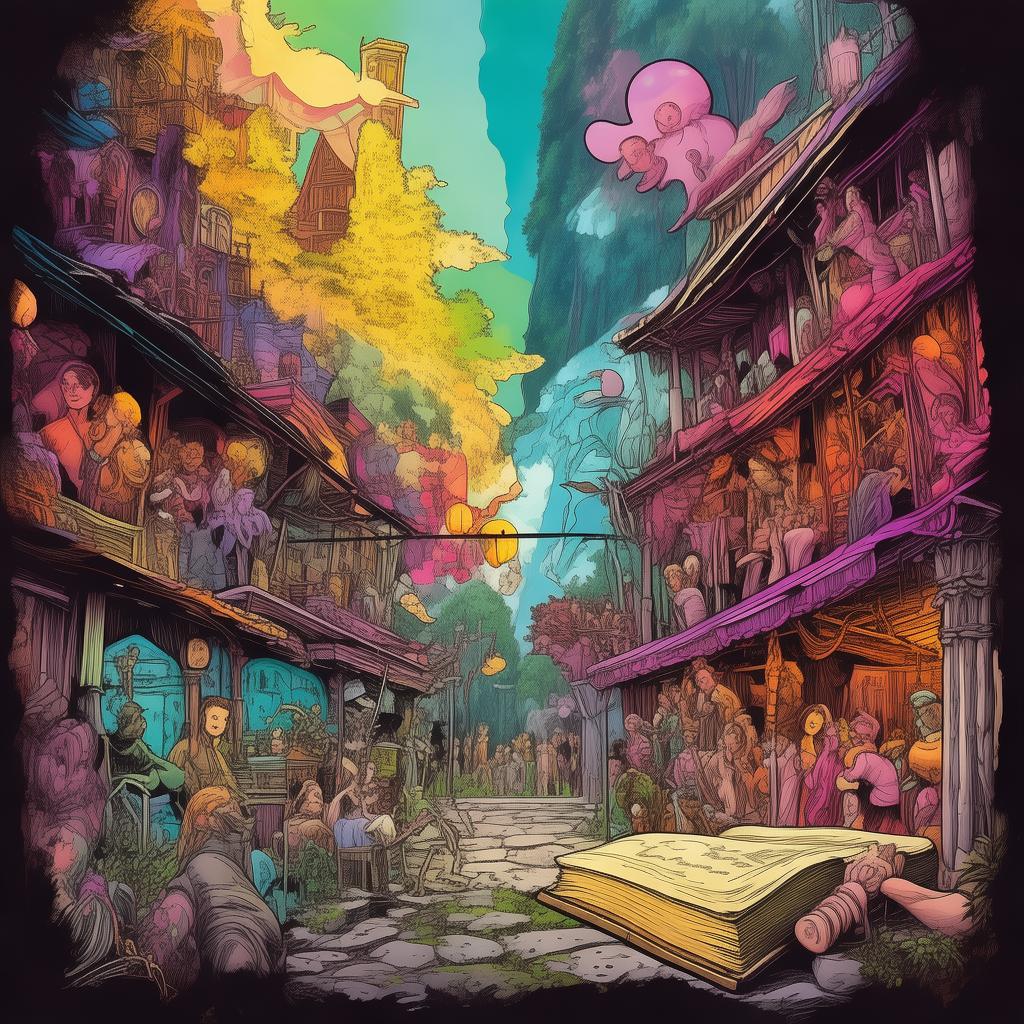Whispers of the Past: The Unveiling of a Teenage Dream
In the quiet town of Willow Creek, where the whispers of the past seemed to weave through the cobblestone streets, there lived a girl named Eliza. She was a girl with a dream, a dream that seemed as distant as the stars in the night sky. Her mother, a woman of few words and many secrets, had always spoken of the "March Hymn," a melody that was said to hold the key to her family's history.
Eliza was a dreamer, her heart full of stories that danced in her mind. But as she grew older, the dream seemed to fade, overshadowed by the mundane realities of life. It was during a cold, winter evening, while cleaning out her mother's attic, that Eliza stumbled upon a hidden diary. The cover was worn, the pages yellowed with age, but the words within were fresh and alive.
With trembling hands, Eliza opened the diary and began to read. The entries were sparse, but each one was a fragment of a story she had never known. She learned of her mother's youth, her love for a man who vanished without a trace, and the birth of a child—a child who was never meant to be.
The diary spoke of the "March Hymn," a melody that her mother had composed, a song that was said to be the last gift from her lost love. Eliza's curiosity was piqued, and she felt a strange connection to the words on the page. She decided to delve deeper, to uncover the truth behind the melody and the mystery of her mother's past.

Her search led her to an old, abandoned mansion on the outskirts of Willow Creek. The mansion was said to be haunted, a place where the spirits of the past still walked. Eliza, undeterred by the rumors, stepped inside, her heart pounding with a mix of fear and excitement.
The mansion was a labyrinth of rooms, each more decrepit than the last. She navigated through the dust and cobwebs, her eyes scanning the walls for any sign of the "March Hymn." In the final room, she found a piano, its keys covered in years of neglect. With a deep breath, she sat down and began to play the melody that had haunted her dreams.
As the notes filled the room, Eliza felt a strange sense of connection. The music was hauntingly beautiful, a blend of sorrow and hope. She realized that the "March Hymn" was not just a melody; it was a love story, a testament to the enduring power of love and the human spirit.
The music brought forth memories, both happy and sad, and Eliza began to understand her mother's pain. She learned that her mother had loved deeply, but her love had been unrequited. The man she had loved had left her, leaving behind only the melody of their love.
Eliza realized that the "March Hymn" was a part of her identity, a piece of her mother's soul that had been passed down through generations. She understood that her dream was not just a dream; it was a legacy, a reminder of the love that had once been, and the love that could be.
As she left the mansion, Eliza felt a sense of peace. She had uncovered the secrets of her past, and in doing so, she had discovered her own identity. The "March Hymn" was no longer just a melody; it was a symbol of hope, a reminder that even in the darkest times, love could shine through.
The journey had been long and difficult, but Eliza had found what she was searching for. She had found herself, and in doing so, she had found the courage to dream again. The whispers of the past had spoken, and Eliza had listened, learning that sometimes, the answers we seek are hidden in the stories of those who came before us.
✨ Original Statement ✨
All articles published on this website (including but not limited to text, images, videos, and other content) are original or authorized for reposting and are protected by relevant laws. Without the explicit written permission of this website, no individual or organization may copy, modify, repost, or use the content for commercial purposes.
If you need to quote or cooperate, please contact this site for authorization. We reserve the right to pursue legal responsibility for any unauthorized use.
Hereby declared.









